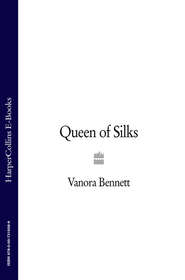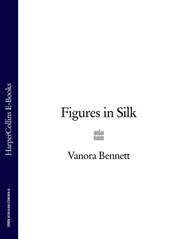По всем вопросам обращайтесь на: info@litportal.ru
(©) 2003-2024.
✖
Portrait of an Unknown Woman
Настройки чтения
Размер шрифта
Высота строк
Поля
‘How can he be? He’s just a skinny little cobbler from Fleet Street!’ I said hotly, on the defensive again.
‘But a skinny little cobbler from Fleet Street can be the darkness,’ John answered persuasively. ‘Or he can to most people. Look, you’re young enough, and lucky enough, to have been brought up in a time of peace and in a sophisticated household where everyone has read about different peoples through the ages having had very different kinds of beliefs and lived in very different kinds of states and still prospered. Your head is full of Greek gods and Roman lawmakers and Eastern men of learning and stars moving in orderly fashion through the heavens. You think civilisation is everywhere. So you have a confidence that you don’t even know is unusual. You don’t live with the fear of chaos breaking through and destroying the way we live that haunts the rest of us. You have no idea how other people feel. Most people feel mortal terror at the idea of the unholy chaos outside, waiting to engulf them. And I don’t just mean the poor and superstitious and unlettered, the people brought up without sucking in Seneca and Boethius and algebra with their mother’s milk. I mean everyone brought up in the shadow of war. Everyone brought up before this rare time of peace and outside the very unusual household you’re lucky enough to come from. I mean everyone older and less lucky than you. I mean people like your father and me.’
‘But you and Father are men of learning! You know everything I know and more!’ I cried, full of frustration that he wasn’t following my train of thought.
‘Ah, but we weren’t brought up to it, and that’s the difference,’ he said, with a certainty that made me pause. ‘We grew up in a world where there was nothing but the fear of the darkness. When death was waiting round every corner. When London could be surrounded at any time by an army threatening to string up every man and rape every woman and throw babies onto their sword blades and torch every parish church. When books were rare and locked up inside the monasteries, and our only hope of salvation was the One True Church and the priests who could mediate for us with God. Of course men of my age and your father’s age fell in love with the new learning and the new freedom to think as soon as we had peace and leisure enough to explore it. But we haven’t forgotten the fear we grew up with. It’s always at the back of our minds. And we can’t feel easy when people take up arms against the Church. You can’t expect that of us.’
He paused, waiting to see the light of acquiescence in my eyes. But I ploughed on, even though his assurance was beginning to make me feel I’d only understood part of the problem. ‘But Father and Erasmus and all the rest of you used to talk about uprooting corruption in the Church,’ I said plaintively. ‘And none of you expected to be treated like criminals for it. So why is it so much worse if a few cobblers get together to pray in a leather-tanner’s room?’
He sighed patiently. ‘It’s not just a few cobblers or a few prayers any more, Meg. It’s not a bit of mockery at the table about crooked priests selling indulgences either. It’s gone much further than that. What’s happening now is an assault on God and His Church. It’s armies of peasants running amok in the German lands burning down churches and murdering the faithful. It’s rogue monks betraying their oaths of celibacy and marrying the nuns who’ve sworn to be the brides of Christ. It’s the old chaos, the horror you’ve never known, threatening us all. Even if you did understand, it would be hard for you to see the danger from the calm of England, but anyone who’s been in Europe in the past few years and knows the signs can see the darkness looming again all over Christendom. It could happen here. Your father is right to be frightened, and he’s right to fight it. We couldn’t hope for a better general than him to lead us in the war against the heretics – precisely because he is the same scholar and gentleman who brought you up. The same good, subtle, generous, wise man. Which is why nothing will make me believe what you’re afraid of – that he could enjoy causing pain. You have to put that idea aside. It makes no sense.’
His certainty sounded stronger than mine. His loyalty to Father made me feel ashamed. I looked down.
‘It’s simpler than you think, Meg,’ he said. ‘You and I will find happiness together. Neither of us will ever be alone again. But we have to do as he says. We mustn’t distract his attention. He’s fighting his war on many fronts. It’s not just cobblers who are a danger. There’s worse elsewhere. There’s heresy rearing its ugly head everywhere – even at court.’
He shifted his shoulders, looking around for the door, clearly unwilling to continue trespassing in Father’s private place. And, taking my arm again as we stepped out into the clean light, he told me the secret of the King’s Great Matter.
Henry VIII, in love with a lady-in-waiting. Henry VIII, in love with a lady-in-waiting at a court so full of rose bowers and Canary wine and dancing till dawn and flashes of leg and cleavage and canopied beds with feather pillows that it seems made for love. Henry VIII, so in love with the one lady-in-waiting who refuses to recline in any of the rose bowers or feather beds at the court made for love that he wants to get rid of his Queen and marry again.
The King is a glittering bubble of gold and bombast.He never takes no for an answer. He is being tormented equally by love and by the Book of Leviticus. ‘If a man shall take his brother’s wife, it is an unclean thing … they shall be childless,’ says Leviticus. And Leviticus is telling the King just what he wants to hear, now that he wants to be shot of the Queen, because once, long ago, for a few months, the Queen was the child bride of the King’s child brother Arthur, who died.
The Queen’s first marriage has only begun troubling the King’s conscience since he has begun to want a second marriage for himself. It didn’t need to trouble anyone’s conscience back when it happened, because back then the Pope formally pronounced that the first unconsummatedmarriage of children hadn’t counted as God’s holy union.But now the King is full of doubts. As he dances attendance on the scented girl with the pointy chin and the witchy eyes and the fascinating mole on her neck, he’s also wondering: is God punishing him for his sinful marriage by denying him a son?
Queen Catherine; devout, learned, Spanish, and in her forties, with powerful friends at court and all round Europe but just one young daughter to show for twenty years in the King’s bed. And worried.
And a clique of ambitious nobodies forming around her rival: pretty, witty, elegant Anne Boleyn. The kind of courtiers known collectively as a ‘threat’. They’re throwing her together with the King; parting the tapestries with a wink and a glitter of excitement.
‘I was with the court at New Year at Hampton Court, and I saw them together myself,’ John said sombrely. ‘They were in a group of maskers. But there was no disguising the King. And no disguising what he felt about the lady in yellow.’
‘But what does the lady in yellow have to do with us?’ I asked.
‘Don’t be impatient, Meg,’ he said. ‘This is the point. The lady in yellow is making your father’s battle against heresy many times more dangerous. She has the King’s ear – and she’s flirting with the heretics too. At a time when the King’s of a mind to be interested in anything that undermines the Queen, the Church of Rome and the Pope, she’s poisoning him in the most subversive way imaginable by giving him the new men’s books to read.
‘If her influence grows, who knows how far the heretical thinking might spread? And who knows what chaos we might be plunged into? Peace is an illusion, an agreement between civilised people, and something your father has worked all his life to promote; but it’s the nature of humanity that the beast is always lurking somewhere beneath the surface.’
The phrases were echoing emptily in my head now. I pleated a fold of my cloak. I didn’t understand. ‘You’re talking politics,’ I said sulkily. ‘Not ordinary life. Not us being in love and getting married.’
‘But Meg, politics is life. If you lose peace you lose everything else: love, marriage, children, the lot. You should thank God you’re too young to remember how things were before – in the time of wars,’ he answered bleakly. ‘But anyone a bit older than you will say what I’m saying now. I lost my family in that madness’ – he shivered – ‘and I know there can be nothing worse.’
Had he? He was old enough to have lost family in the wars, but he’d never talked about it. All I knew for sure was that he’d been taken into a family friend’s household as a boy, after his own father’s death. I’d asked him about his childhood once. He’d just shaken his head and twinkled at me. ‘Very different from the way I live now,’ was all he’d said. ‘I like this way of life a lot better.’
‘The best we can do, in the weeks and months to come,’ his voice rolled on now, ‘is to hope that the King’s fancy turns elsewhere and this crisis passes. And meanwhile, try not to judge your father too harshly. Some of the things he’s doing may look cruel, but it’s up to him to root up the evil spreading over English soil before it starts clinging to the King. The only thing we can do is let him concentrate on doing his job, and wait for the moment to be right for us.’
He swung me round in front of him like a doll, lifted my face, and looked searchingly into my eyes. ‘Oh Meg, don’t look so scared. Have faith. It’s going to happen. I’m going to marry you. I only wish,’ he added, leaning down and kissing the top of my head, very gently, ‘that it could be today.’
I stayed very still, looking down, treasuring this moment of quiet togetherness, warmed by the sincerity in his voice and the folds of his cloak flapping in the rising wind, watching the shadow of the anxious clouds scudding through the deepening sky chase across the lawn at my feet. Still hardly able to believe that he could be here, saying he felt about me as I always had about him, still swimming with delight. And feeling half-reassured that he didn’t think Father was becoming a vengeful, sadistic stranger, though not sure I completely agreed. Still feeling twinges of unease and uncertainty; but willing, more than willing, to do whatever John Clement said, because he said he loved me and because I loved him.
‘You said,’ I whispered, with my face so close to his chest that I could smell the warm man-smell of him, trying to focus on the questions I needed answers to but not sure any more what they were, ‘that there were things Father wanted you to be able to tell me … was that just about the College of Physicians? Or was there something else?’
He hesitated. For a moment I thought I saw his eyes flicker, as if there was something he wanted to hide. But then he smiled and shook his head. ‘No. Nothing else,’ he said firmly. ‘Nothing for you to worry about.’
We huddled together, looking up at the house, knowing it was time to go back. I knew I should feel nothing but joy, but this snatched meeting was so unexpected, and so incomplete, that my pleasure in it was bittersweet too, and tinged with sadness. So what I found myself saying, as we turned back up the path, arm in arm, was, ‘You know, I miss the innocence of before … the time when there was nothing more to worry about than putting on a play that made us laugh after supper … when there was nothing worse than a weasel in the garden … when Father did nothing more dangerous than hearing court cases about ordinary street crimes … and when everything he wrote was just a clever game, instead of a war of words …’
‘My darling girl, I think what you’re saying is that you miss Utopia,’ John quipped, and I thought for a moment that he might be laughing at me. That was the title of Father’s most famous book, written in the summer that John went away, in which a fictional version of my teacher – known in the book as ‘my boy John Clement’ – had been given a minor role. It was the story of a perfect world, as perfect in its way as our own contented past.
I didn’t feel like laughing back. ‘Well, I do miss it,’ I said defiantly. ‘Who wouldn’t?’
But the wind had got into his cloak, and was tugging at his beard, and he was very busily fidgeting his accoutrements back into submission.
‘Let’s go,’ he said, as if he hadn’t heard, stepping ahead of me, ‘before we get blown away.’
But he had heard, after all, because a few steps later he added, rather bleakly, over his shoulder: ‘Nostalgia is dangerous. Never look back.’
Or perhaps I’d imagined the chill, because by the time we got up to the door and stopped to catch our breath, now we were out of the wind, he was smiling again, and his face was as softly radiant as I could have hoped. He smoothed down the hair escaping out of my cap, and touched a finger to my lips.
We might have lingered for longer on the threshold, glowing with wind and love. But suddenly the sound of two lutes in duet began drifting out into the late afternoon: invisible fingers plucking, hesitantly and very slowly, at a bittersweet popular air.
‘Listen!’ he said, with a music-lover’s delight, pushing open the door to hear where the sound was coming from. I didn’t need to rush. I knew exactly what a mangled lute duet signified in our house in Chelsea. Father was home.
4 (#uc5ddf376-f561-5d1b-97d9-d2eb00e0b316)
The hall was crowded with new arrivals. But one head stood out among the rest – that great dark lion’s head, with the square jaw and long nose and the piercing eyes that could see the secrets in your soul, the head of the man with the glorious glow about him that fixed every other pair of eyes on him wherever he went. When Father threw back his head and laughed – as he often did – he always transported whatever roomful of watchers he’d gathered around him into a quite unexpected state of pure, joyful merriment. He wasn’t exactly laughing now, as I slipped into the room behind John Clement. He and Dame Alice were sitting on two high-backed chairs, surrounded by a standing crowd of soft-faced admirers with stars in their eyes, and the pair of them were struggling to make their disobedient lutes obey them (he’s always been tone deaf, but he loves the idea of playing duets with his wife). But there was a smile playing on his wide mouth as he tried to force his fingers to be nimble on their strings. He knew his limitations. He was ready to see the lute duets, like so much else, as the beginning of a joke about human frailty.
His magic worked as powerfully on me as it did on everyone else. Glancing around past all the usual family faces and the stolid features of Master Hans, I saw he’d brought the Rastells and the Heywoods home with him, and John Harris, his bow-backed confidential clerk, and Henry Pattinson, his fool, fat and shambling behind them, and in the shadows John a Wood, his personal servant, who was probably tutting adoringly in his corner over the state of the master’s muddy old shoes, sticking out beneath his robe, and plotting one of the sartorial improvements that Father loves to resist. The sight of Father emptied my mind of all my rebellious thoughts. With him here, the household was complete. The dusky room was lit up with more than candles. The warmth came from more than just the fire blazing in the grate. Like everyone else, I was ready to forget everything and just revel in the effortless happiness that came from enjoying watching him enjoying himself.
Until, that is, I sensed a shiver run down the back of the man in front of me. From where I was standing, I couldn’t see John’s expression. But, with sudden protective anxiety, I became aware of Father glancing up from the frets under his left hand and, for the first time, taking in the bearded face of his uninvited guest.
Father didn’t miss a beat. With his hand still moving on the fingerboard, he held John’s gaze for a moment, inclined his head in the merest sketch of a courtly bow, and murmured, in his softest voice, ‘John.’ The smile stayed on his lips.
Then he turned his eyes down, back to his difficult music.
It had been no more than a greeting. But I felt John flinch as if it had been a whiplash. He was shifting uneasily on his feet now, glancing back at the door, clearly longing to be off.
After the music finally dissolved into applause, Father got up with the lute still in his hand. I was certain he was about to make his way towards us. I stepped aside, stealing a glance up at John’s face and reading the pale signs of guilt on it.
Yet Father didn’t part the crowd of acolytes to approach John. He had too much of a sense of occasion. He was turning now to the delighted Master Hans, and apologising for the poor musical entertainment – ‘But I assure you something better will follow,’ he was saying, and John Rastell, my uncle the printer, and his son-in-law John Heywood, were visibly quivering with secret knowledge of what that would be – and within minutes we were being organised into the impromptu performance of a play, and transported back into the carefree atmosphere of a family evening in the old days.
‘Let’s do The Play called the four PP!’ young John More, excited and puppyish, was calling out. John Heywood’s play, written long after John Clement went away, had been a family favourite for years – a satire on the trade in false relics by mendacious travelling monks. Young John was waving his goblet of Canary wine, and his grin was almost splitting the child’s face, which now seemed far too small for his ever-growing body. ‘We could use this as the wedding cup of Adam and Eve! … And this’, he picked up a trinket box, loving the joke, ‘as the great toe of the Trinity!’ But the older Johns shushed him. They’d clearly agreed in advance what we’d be acting – and opted for no religion – because it was only a matter of moments before everyone was dressing up instead for The Twelve Merry Jests of Widow Edith, with Dame Alice assigned, with her usual good-tempered resignation, to play the starring role of the bawdy old fraud who debauches our family servants. ‘If this is a punishment for all my shrewishness,’ she said, and twinkled, ‘I should learn to keep quiet in future,’; then, twinkling even harder and tapping Father on the shoulder in the middle of his mock-henpecked look: ‘Just my little joke, husband.’
It was only when the shuffling and scene-setting was in full swing, and all the other Johns were fully occupied elsewhere, that Father finally approached my John. Who was still standing, looking ill at ease, while everyone else bumped busily past him.
‘John,’ Father said, opening his arms, dazzling the taller man with his smile. ‘What a surprise to see you here. Welcome to our poor new home,’ and he embraced his bewildered protégé before slowly moving back, patting him gently on the back, to include me in his smile.
‘John Clement,’ he said to me, with a hint of mockery in his voice as he pronounced that name, ‘has always been a man of surprises. Ever since the time we first met. Do you remember our first meeting, John?’
And a current of something I couldn’t define ran between them – what seemed a sense of threat masked by smiles – though perhaps I imagined it. John was smiling back, but I sensed he was hanging intently on Father’s every word. So was I. I knew so little about John’s past that any new light Father could shed on who my enigmatic intended had been before he came to live with us would be well worth having.
‘It was in Archbishop Morton’s house, Meg, when I was just a boy – maybe twelve years old. You’ve heard all about Archbishop Morton, I know: my first master, and one of the greatest men it’s ever been my privilege to serve. A man whose great experience of the world made him both politic and wise. God rest his soul.’ I was being drawn closer, into the magic circle. His voice – the mellifluous tool of his lawyer’s trade – was dropping now, drawing us into his story.









